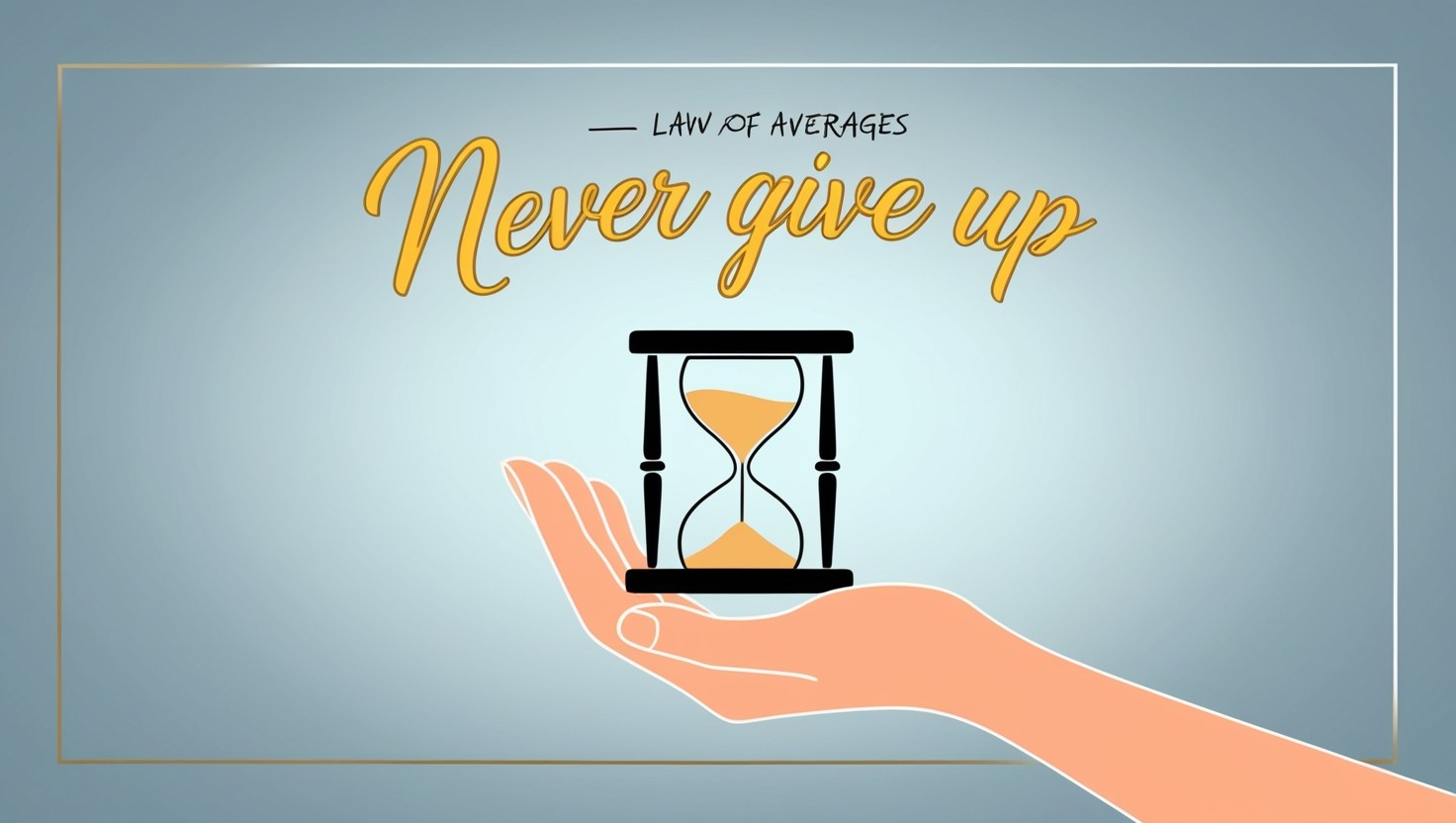The Law of Averages suggests that the more attempts you make, the more likely you are to achieve success over time. It’s a simple but powerful principle—if you consistently put in the effort, eventually, the odds will work in your favor. Whether you’re working toward a personal goal, building a business, or improving your skills, the law teaches us that persistence and consistency are the keys to breaking through challenges and failures.
This concept reminds us that success isn’t always about immediate results but about showing up, making attempts, and trusting that continued effort will lead to the desired outcome. Whether it’s sales, networking, or personal growth, the Law of Averages shows us that each failure brings us one step closer to success. In this guide, we’ll explore how you can apply this principle to various areas of your life, and how embracing the long game can drive you to reach your goals.
What is the Law of Averages?
The Law of Averages is the idea that, over time, the outcomes of repeated actions tend to balance out. It’s based on the principle that if you put in enough effort or attempt something often enough, the likelihood of achieving your goal increases. The law suggests that while you may experience failures or setbacks along the way, consistency in your actions will eventually lead to success. It applies to both personal and professional endeavors, reminding us that persistence is often the deciding factor in long-term achievement.
Applying the Law of Averages to Personal Success
In personal development, the Law of Averages teaches that success is often a result of persistence over time. Whether you’re learning a new skill, building a healthy habit, or reaching a fitness goal, the principle is simple: the more you try, the closer you get to achieving your goal. For example, if you’re trying to learn a new language, every practice session builds toward fluency. You may struggle or fail initially, but by consistently showing up and putting in the effort, your chances of success increase with each attempt.
The Role of Failure in Success
Failure is an inevitable part of the path to success, especially when viewed through the lens of the Law of Averages. Each failure is not a setback but rather a stepping stone toward achieving your goal. Every time you try and fail, you learn something new, refine your approach, and get one step closer to success. The law reminds us that it’s the cumulative effect of efforts and attempts that eventually leads to positive outcomes. Failure simply increases the likelihood of finding the right solution.
Using the Law of Averages in Business and Sales
In business and sales, the Law of Averages can be a game-changer. The more potential clients or customers you reach out to, the more likely you are to close deals. For example, if a salesperson knows that 1 out of every 10 sales pitches results in a conversion, they can focus on increasing the number of pitches, knowing that success will follow. Each attempt moves the needle closer to success, even if every interaction doesn’t yield immediate results. Persistence and numbers are key to improving outcomes.
How to Maximize the Law of Averages
Maximizing the Law of Averages means focusing on both quantity and quality. Start by setting realistic goals for the number of attempts—whether it’s sales calls, job applications, or personal goals—knowing that each action brings you closer to success. It’s important to track your efforts and measure results over time, identifying patterns that help refine your approach. By making small improvements, like tweaking your message or targeting the right audience, you increase the chances of each attempt being successful. Consistency, combined with learning from feedback, is what maximizes your results.
Final Thoughts
The Law of Averages teaches us that consistent effort, persistence, and patience are essential to achieving success. Whether you’re working on personal goals, building a business, or improving your sales performance, this principle reminds us that every attempt counts, even those that result in failure. The more you try, the closer you get to your desired outcome. By applying the law effectively—tracking progress, learning from setbacks, and continuing to put in the work—you can maximize your chances of success in any endeavor.



